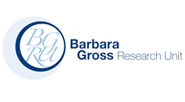
1300 722 206
Contact Us
The symptoms of IBS can include lower abdominal pain, discomfort, bloating, wind and a change in bowel habit. You may have all or just a few of these symptoms.
IBS is categorised into three primary groups depending on the predominant symptom:
Women, adolescents and young adults are twice as likely to have IBS. If you have IBS, you may notice that your symptoms increase just before your period. Mental health problems such as anxiety, stress or depression can also predispose you to developing IBS.
IBS tends to be a long-term recurrent disorder that can affect your enjoyment of life. Sometimes patients find themselves missing work or school, avoiding social activities, or experiencing depression. It’s important to seek proper treatment to manage IBS.
In most cases it is difficult to work out exactly what causes IBS. A range of factors appear to play a role and triggers vary from person to person. They can include:
If you think you might have IBS, it’s important to see a doctor. Your doctor will evaluate your symptoms and check that they aren’t caused by any other bowel disorder.
If you have a specific enquiry for our WHRIA specialists
Click HereIBS usually involves a number of different factors, so we try to address them all. Identifying your triggers is essential to relieving your IBS, and we can work with you to determine the best treatment options for you.
Depending on your main symptoms, we often recommend lifestyle modifications supported by WHRIA’s multi-disciplinary team and herbal medicine.
Treatment options include:
Diet modification and Iberogast®, a liquid herbal formula, are considered first-line treatments for IBS.
Often, food intolerances are a contributing factor, and these need to be identified and eliminated. FODMAPs are a group of carbohydrates in food that some people find hard to digest and absorb – in many cases, a diet eliminating these foods can help people with IBS.
Consuming adequate dietary fibre is also a major aspect of management.
Many people with IBS will notice their symptoms increasing or decreasing depending on the amount of stress they are experiencing.
Your bowel can become oversensitive to the smallest amount of conflict or stress and amplify IBS symptoms. While stress may aggravate your symptoms, it is not the cause of IBS. Hypnotherapy has been shown in clinical studies to reduce the symptoms of IBS.
Tanya Wollstein can help you improve the way you react to a stressful situation and give you tools to reduce the sensitivity of your nervous system and improve your digestive symptoms. Sometimes, a positive influence on your mood and overall lifestyle can be hugely beneficial to people with IBS.
Good bowel and bladder habits are essential to the daily management of your IBS. Sherin Jarvis & Donna Namdaran are very experienced in helping people develop management strategies – she can help you create good bladder and bowel habits that can vastly improve the everyday symptoms of IBS.
If gastrointestinal illness or infection was a trigger for your IBS symptoms, this also needs to be addressed. WHRIA has a network of gastrointestinal specialists who can work within the holistic team approach.
To find out more about related conditions and IBS treatments, see our health information sheets:
Find other useful information for people with IBS at these links:
Monash University’s guidelines for the low FODMAP diet for IBS.
If you have a specific enquiry for our WHRIA specialists
Click Here








© 2025 Women's Health & Research Institute of Australia. Privacy Policy | Terms of Use | Website by Phil Kurth